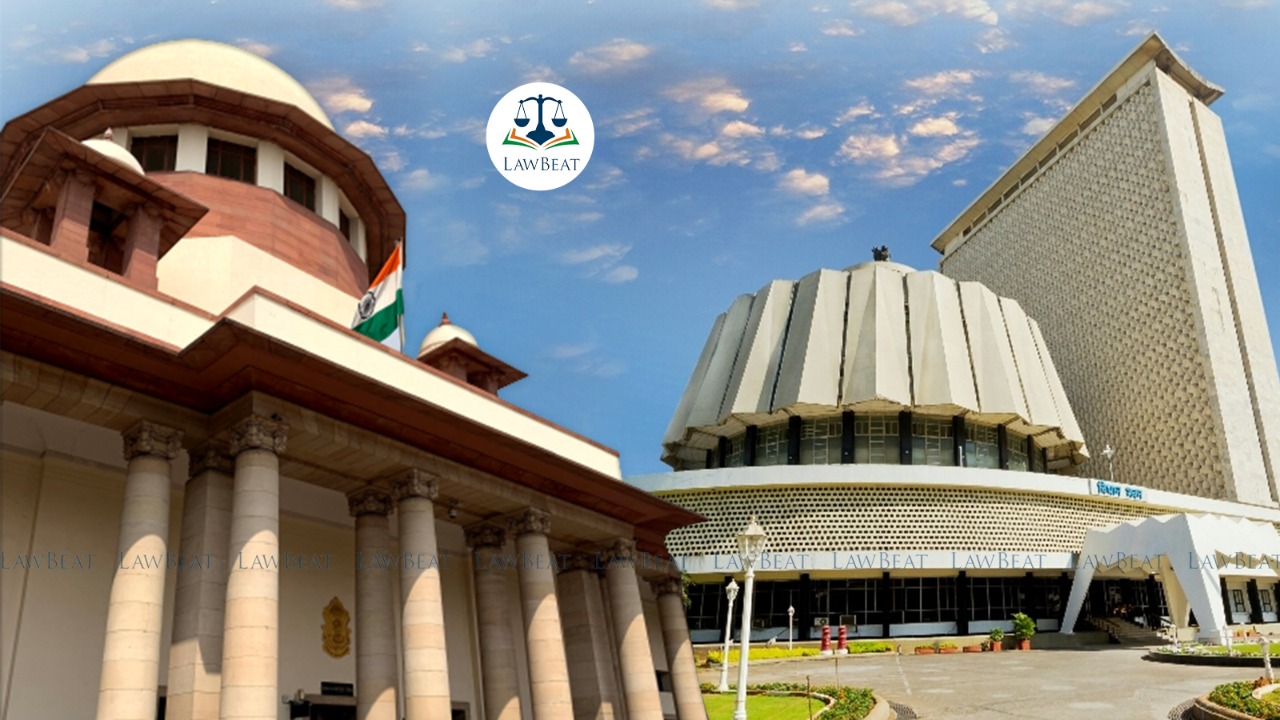“What you have done is worse than expulsion!”: Supreme Court tells Maharashtra government in plea against Legislative Assembly’s suspension of 12 BJP MLAs

A Supreme Court bench of Justices Khanwilkar, Dinesh Maheshwari and Ravikumar today remarked that the act of Maharashtra Legislative Assembly suspending 12 Bharatiya Janata Party (BJP) MLAs for a period of 1 year is worse than expulsion.
The bench also indicated that the the order of Maharashtra Legislative Assembly suspending the MLAs is unconstitutional as according to Article 190(4) of the Constitution, "If for a period of 60 days a member of a House of the Legislature of a State is without permission of the House absent from all meetings thereof, the House may declare his seat vacant.” The bench further remarked that this situation could have been avoided had the Speaker adjudicated on the dispute.
The bench also brought to the notice of the state that 12 constituencies cannot be left unrepresented for such a long period and that the constituents had the right to be represented. The bench also informed that if such a precedence is permitted, it will lead to very dangerous situation in democracy.
“Today it is 12, tomorrow it can be 120," Justice Khanwilkar remarked.
When the hearing for the matter began, Sr. Adv. CA Sundara, appearing for the state of Maharashtra submitted that after the last order of the Court the MLAs have made applications before the Speaker and have been have duly been heard.
Sundaram further asked the Court to adjourn the matter by 3 weeks so that the outcome of the representation can be brought to the notice of the Court.
Objecting to this, Sr. Adv. Mahesh Jethmalani, appearing for the MLAs, submitted that the suspension was made by the assembly and can only be revoked by the assembly. He further submitted that the assembly is going to be in session only from the last week of February.
Jethmalani argued that the act of the resolution is without any jurisdiction whatsoever and that the act of suspension was also done without following any procedures.
He submitted that that there is also a gross violation of natural justice in this case.
Jethmalani took the Court through Rule 53 of Maharashtra Assembly Rules that contemplates that a speaker can suspend a member of the Assembly for the rest of the day on first warning, a session on second warning and has no power of suspension beyond that.
He further submitted that the resolution was moved onthe same day as the complaint was lodged and that no opportunity of being heard was accorded to the suspended MLAs.
Sr. Adv. Mukul Rohatgi appearing for one of the MLAs submitted that the House and the Speaker are bound by the book of rules and that the House does not have any punishment powers.
He questioned as to how a democracy can function if the house is given powers to suspend anyone for any term and said, “Suppose the House says someone is debarred for 5 years, what are the limits of their powers?"
He concluded by saying that rules and regulations add flesh and blood.
Sr. Adv. Siddharth Bhatnagar, appearing for another MLA submitted that suspension is worse than expulsion. He submitted that an expulsion is not a disqualification. A vacant seat has to be filled in 6 months under Representation of Peoples Act. However in the given case, neither are the seats filled nor are the constituents represented.
CA Sundaram submitted that the legislature can part from the rules that are framed for its governance and that the Court cannot review the decision of the legislature to deviate from these rules as they are merely procedural and not substantive. He submitted that the legislature is not subject to jurisdiction of the Court when it comes to procedural irregularities. This would be beyond the jurisdiction in Article 212 of the Constitution.
Sundara submitted that once the power lies in the legislature to punish MLAS for such conduct it is assumed that such power is intrinsic, he submitted the question of whether the punishment is excessive or not excessive will not fall into the jurisdiction of the Court. He submitted that there is a difference between the guidelines the legislature frames for itself and the guidelines it is bound to follow from subordinate legislation.
The Court at this point questioned, “The consequence of this procedure is that it is going to affect the regime. This is a forced absence. Article 190 (4) will come into play? Can we inflict punishment transcending A. 190(4)?” The Court further opined that suspension of an MLA is substantive and not procedural.
Justice Khanwilkar remarked,“In the facts of the present case, we will say enough is enough. We will have to deal with only one issue and that is the issue of 6 months having been already over. We could dispose it off with a 2 page order just dealing with it. We will accept the argument of Mr. Bhatnagar that this is worse than expulsion.”
However, due to paucity of time, the matter has been adjourned to Tuesday.
These petitions have been filed challenging the suspension of 12 BJP MLAs - Sanjay Kute, Ashish Shelar, Abhimanyu Pawar, Girish Mahajan, Atul Bhatkalkar, Parag Alavni, Harish Pimpale, Ram Satpute, Vijay Kumar Rawal, Yogesh Sagar, Narayan Kuche and Kirtikumar Bangdia, stating that under the Maharashtra Legislative Council Rules, Rule 59, the Speaker has the sole right to suspend members on the ground of unruly behavior, however, in this case, the suspension has taken place after a resolution of the Assembly.
On the last date of hearing the Court issued a notice returnable on January 11, 2022, while stating that "the pendency of the matter will not come in way of parties to approach the House, and the House may take this into account."
Cause Title: Ashish Shelar and Ors. vs Maharashtra Legislative Assembly
